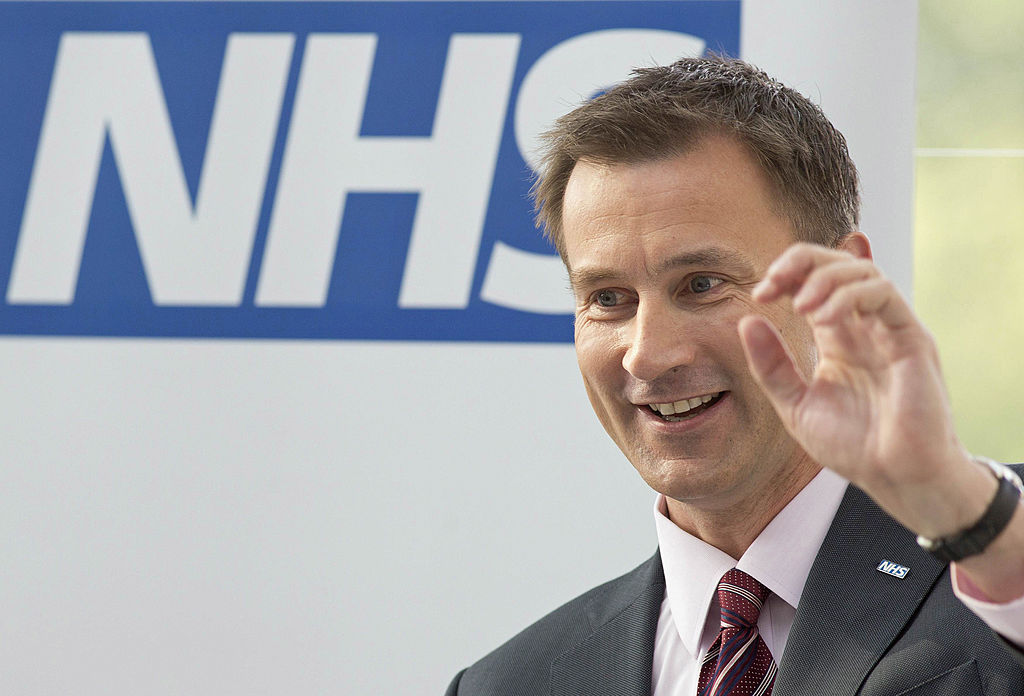
When Jeremy Hunt, the Chancellor, delivers the Budget on Wednesday (15 March), he is expected to announce policies to limit energy bills, bolster childcare support and give businesses tax breaks. Hunt is not, however, expected to announce additional funding for the NHS – despite the health service facing the biggest crisis in its history.
In his first fiscal intervention as Chancellor last November, Hunt announced some support for the NHS. This included a £3.3bn boost to its budget for each of the next two years. He also delayed planned care reforms and allowed councils to raise local taxes to 5 per cent, to give £7.5bn in cash terms to the adult social care sector over the same period.
But despite the NHS being in a similarly deteriorating state as it was then, it is unlikely to receive another boost now. “The indications that have been given to us suggest that there is no intention to add to what was announced last autumn, and that’s of concern to us,” Matthew Taylor, the chief executive of the NHS Confederation, a membership body representing the service’s workers, told Spotlight.
[See also: Wes Streeting interview: “NHS privatisation could not be further from my politics, values or aims”]
The lack of funding in the Budget will be of concern on two fronts. The first, according to Taylor, is that at present it’s “going to be very challenging to meet demand and to make inroads into the [treatment] backlog”. Rishi Sunak’s pledge that NHS waiting lists will fall, he noted, will have a negative effect on other areas of healthcare, as resources are moved to meet the goal. The NHS’s present funding will not cover everything.
“The problem is that if the overall funding is inadequate, and then you put an enormous amount of emphasis on certain key targets, what that means is that other areas will tend to lose out,” said Taylor. “That could be things like community and mental health services. If you don’t have adequate funding, and you very much emphasise certain things, you are, in effect, deprioritising other things. And that makes the job very hard.”
NHS leaders have told Taylor that they’re concerned that the “incredible emphasis” on “getting rid of long waiting lists is taking priority over clinical priority”. He said that they were asking themselves: “Do you treat the people who most need to be treated, or do you treat those who’ve been waiting longest?”
The other key problem is pay. Hunt’s funding boost last winter incorporated the 4 per cent pay rise that the government’s independent pay body recommended for workers in much of the NHS. In the face of strikes by nurses and paramedics, among others, demanding pay rises that better meet inflation, the government has said that any additional public sector pay rises would have to come out of departments’ existing budgets. If it sticks to that line, then “that’s going to create a hole” in the NHS’s already “very tough and tight budgets”, said Taylor.
[See also: Spring Budget: What will Jeremy Hunt announce?]
A month before Hunt’s November announcement, NHS bosses warned that a combination of Covid-19 cases, pay rises and inflation could lead to a shortfall of £7bn in the health service’s funding this year. Experts on health policy then pointed out that Hunt’s £3.3bn for the year was, therefore, only about half of what was needed. The government has faced further criticism this year after scrapping a white paper on health inequalities.
Hunt, prior to being Chancellor, was Britain’s longest-serving health secretary. Speaking to the New Statesman last year, he acknowledged how interdependent the various parts of healthcare are, and the correlation between a healthy nation and a productive economy. He said that his “biggest regret” in his former role was not addressing Britain’s crumbling social care system. He described cuts to social care as a “silent killer”, to which he attributed the severe ambulance delays the UK is experiencing today.
“Around the rest of the world,” Taylor said, “people are starting to understand the relationship between health and prosperity. They’re starting to understand that a sick country is a poor country and a poor country is a sick country. So one of the things I hope we’ll see in the Budget – because we have a Chancellor who was secretary of state for health – is some recognition that investment in health is not just pouring money into a bottomless pit.”
[Read more: Rishi Sunak pledge tracker: is Britain on the road to recovery?]


